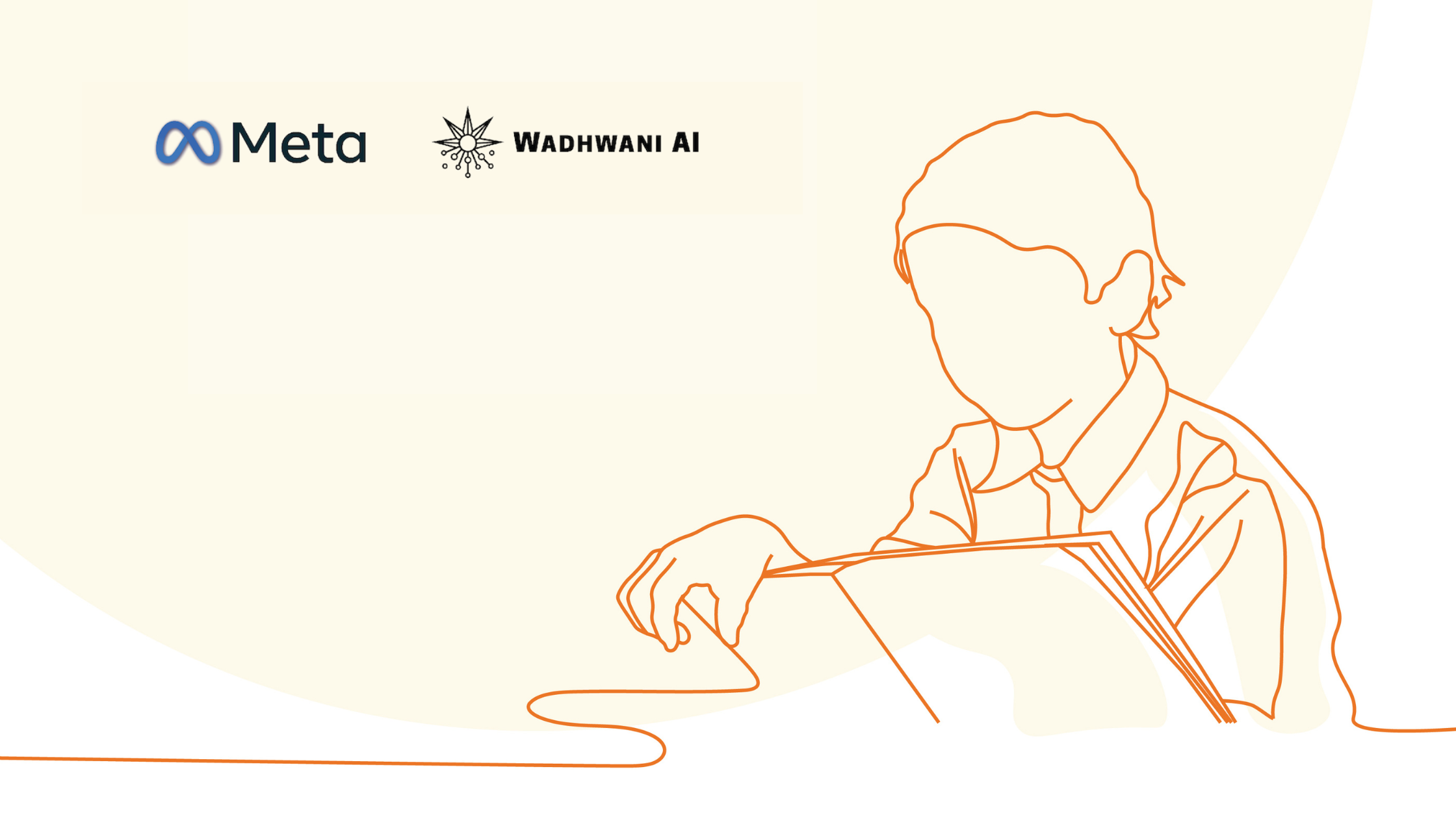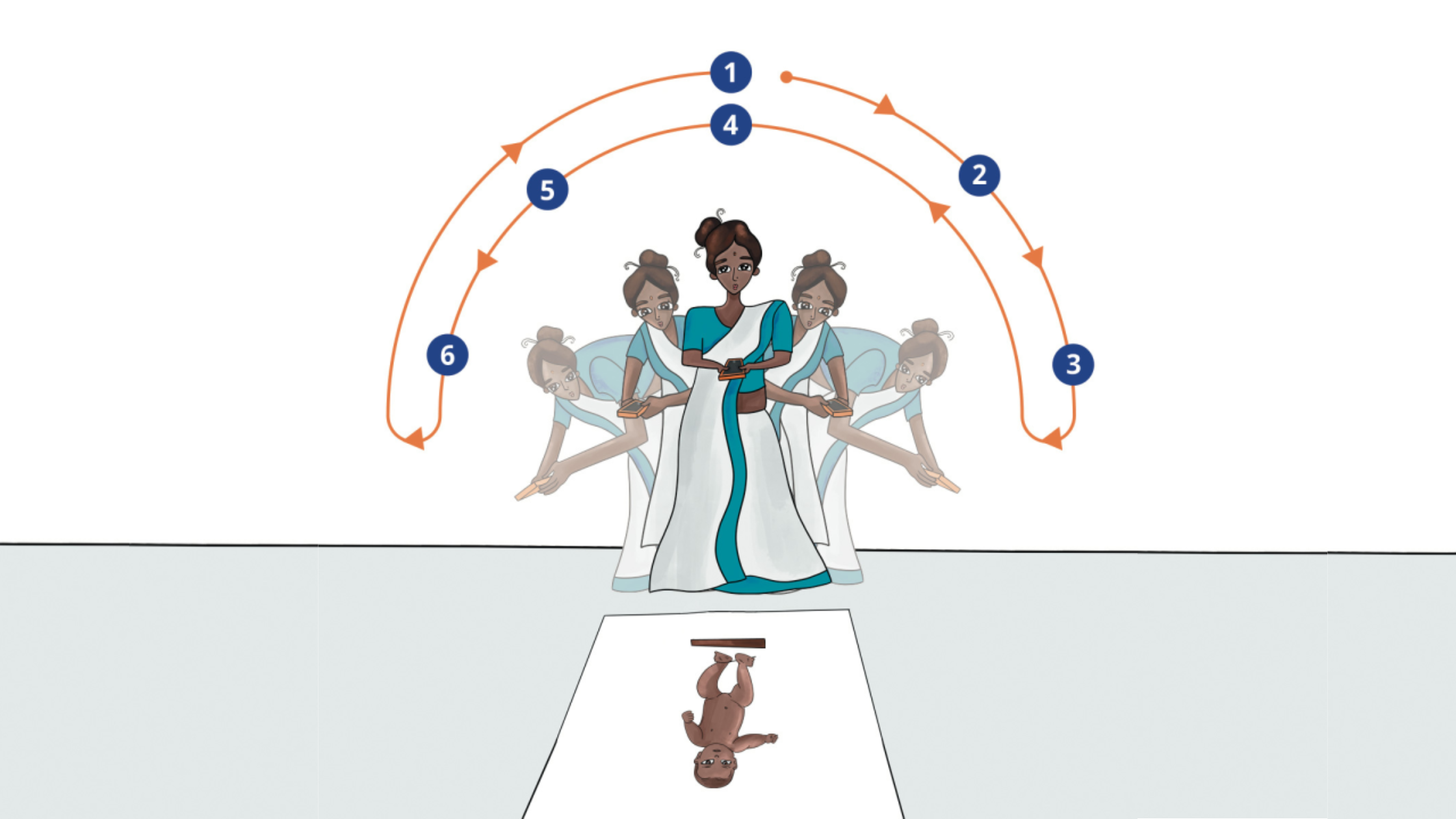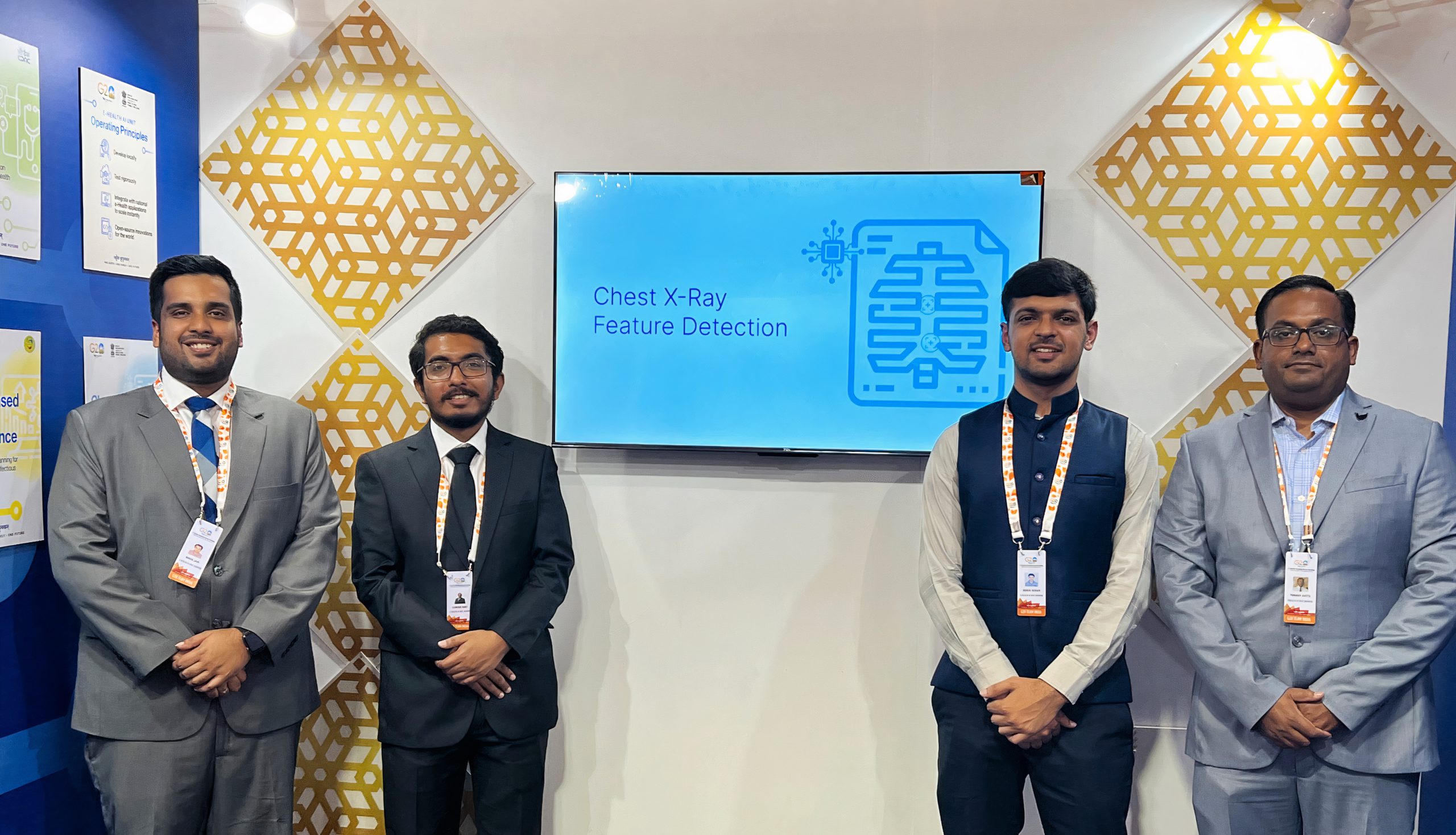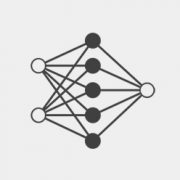Wadhwani AI is one of the three recipients of the 2023 Meta Llama Impact Grant, supporting the enhancement of our Oral Reading Fluency (ORF) assessment solution. Developed in partnership with the Education Department of the State Government of Gujarat, the solution has been helping teachers in the region identify areas for personalized interventions to improve students’ reading fluency in the Gujarati language.
By leveraging Automatic Speech Recognition (ASR) models, the solution provides nuanced insights using voice recordings of students reading grade-appropriate text passages. Deployed through GShala (the state’s learning management system) and SwiftChat (a conversational AI chatbot platform by the ed-tech social enterprise ConveGenus), we have conducted over 3.4 million assessments for students across grades 2 to 8, under the supervision of over 120,000 teachers in over 30,000 schools. In 2024, we are working towards integrating the English reading fluency component into the solution for the state.
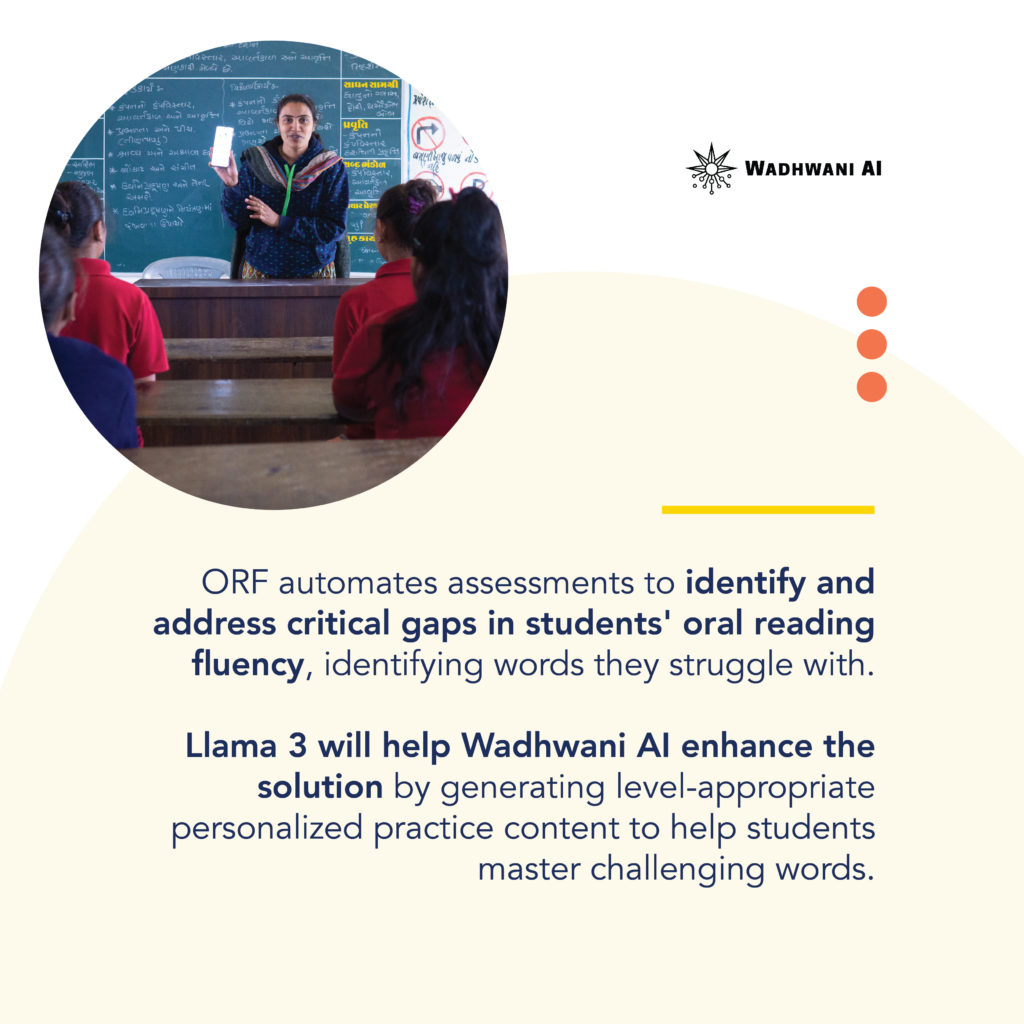
We aim to enhance its Oral Reading Fluency assessment solution by integrating Llama—an open-source Large Language Model (LLM) by Meta—to create personalized practice modules for students. Our solution creates reading assessment records for each student including a set of words (or phonemes) that they struggle with. We intend to use the Llama model’s generative capability to generate level-appropriate paragraphs that allow students to gain mastery of words they find challenging. By fine-tuning Llama, we aim to generate content that is aligned with curriculum standards—addressing the diverse needs of students. We also plan to employ Llama to create questions that assess students’ reading comprehension, thereby providing a holistic approach to strengthen students’ reading abilities.
With Llama’s aid, we will deploy our solution in Gujarat with the English assessment component—scaling it gradually to other states and institutional settings where non-native English speakers can benefit from contextually appropriate tools to improve their reading fluency. We plan to combine the Llama model with our existing ASR models to help students and teachers improve learning outcomes through scalable assessments, insightful cohort and individual diagnostics on students’ performance, and personalized remediation and practice content.
This will help students in Gujarat and other Indian states achieve fluency and comprehension proficiency in English and potentially other Indic languages.


